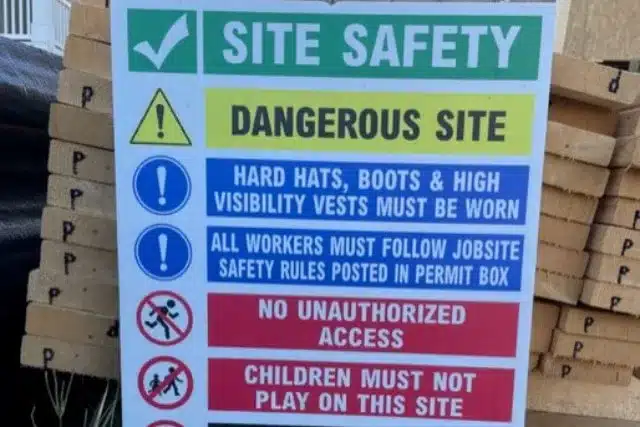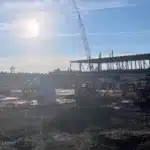7 Benefits Of Good Housekeeping On Your Jobsite
Construction sites can be dangerous places filled with risks. A messy and disorganized job site poses an even greater risk. Good housekeeping may not seem like it directly relates to the safety of your construction project, manufacturing site, or office space. However, it plays a vital role in a safety program. OSHA recognizes good housekeeping as an essential element of safety and has at least four standards that relate to good housekeeping to prevent things such as tripping over loose objects on the floor, being hit by falling objects, or slipping on wet or dirty surfaces. Of the four standards, three are for general industry, and one is specific to construction sites. OSHA standard 1910.141 for general industry states that all places of employment shall be kept clean to the extent that the nature of the work allows, and OSHA standard 1910.22 walking-working surface standard says that all workplaces should be kept clean and orderly in a sanitary condition. OSHA standard 1910.106 relates to hazardous materials and flammable/combustible liquids, while OSHA standard 1926.25 discusses general housekeeping regulations for construction. Ensuring appropriate housekeeping can help control or eliminate workplace hazards, resulting in a safer work environment.
In our decades of conducting job site safety audits for construction and general industry sites, we often come across easy, simple solutions to improve a business’s safety, including good housekeeping. These basic things should be done to keep the construction or general industry site organized, clean and free from hazards. These good housekeeping strategies play an important role in keeping employees safe.
Tips to Improve the General Housekeeping on a Job Site
- Keep stairs, hallways, exit routes, and emergency exits clean and free of slip-and-fall hazards.
- Keep electrical cords, hoses and welding leads away from foot traffic.
- Create an area for trash.
- Clean up as you go.
- Keep access routes clear.
- Fix what is broken.
- Raise awareness about the benefits of good housekeeping.
- Centralize storage locations.
- Keep an inventory of materials.
- Properly maintain buildings, tools, and equipment.
- Stack materials and supplies orderly and secure them so they don’t fall.
- Do not block fire extinguishers, first aid kits, exits, eyewash stations, emergency showers, etc.
- Plan an organized storage system and manage the movement of materials.
- Maintain light fixtures. Employers should adequately light all buildings and yards.
There are benefits to prioritizing good housekeeping in your overall safety plan. It is a good idea to have a written housekeeping plan and to make sure that everyone plays a part in the housekeeping procedures. Workers should inspect and clean their workplaces and understand the benefits of doing so. Training on housekeeping policies and procedures should be documented and reviewed often.
7 Benefits of Prioritizing Good Housekeeping
- Reduce injuries and accidents.
- Effective use of space. Orderly storage of materials will utilize space efficiently.
- Decrease fire hazards with proper material storage.
- Better control of materials, tools, and supplies.
- Improve productivity and efficiency. Employees will easily find materials.
- Control dust. Air quality and dust can also affect equipment length of life and quality of products, not to mention the health effects of dust and poor air quality on workers.
- Save money. Less wasted time looking for materials and supplies.
- Boost morale. People tend to thrive in organized, clean spaces, and prioritizing good housekeeping will show you care.
Suppose OSHA enters your site and sees inadequate housekeeping. In that case, they are more likely to conclude that if your organization can not control the simple issues, you are more likely to violate the more complex safety standards. Risks can be reduced when reasonable housekeeping procedures are followed and employees understand the relationship between proper housekeeping and safety. Connect with us today at 919-417-2139 or if you have questions or want to learn more about the role good housekeeping can play in your safety program.


